What better way to celebrate the Fourth of July than a jaunt through early Americana! When my dear friend Robert Riger searched New England Historic Genealogy Society‘s collection of Early American Newspapers, 1690-1876 for ancestors, he instead found their lost cows! With his permission, here are my favorite clippings from his entertaining trove of historical lost-and-found:
We start exactly as you would expect. Here is a plea for the return of a lost cow to Robert’s first cousin five times removed:
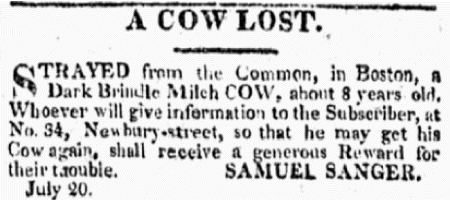
Fortunately, it appears that bovine finders were not keepers — at least not amongst Robert’s ancestors. Here Robert’s second cousin six times removed reports that he found someone else’s lost cow:
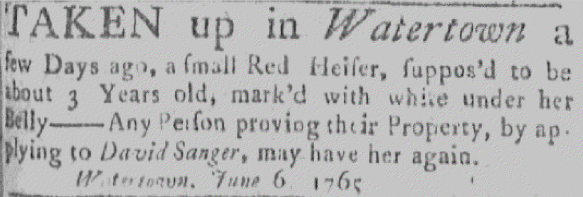
And here Robert’s second cousin seven times removed also tries to be helpful:
 Robert’s ancestors relied upon the newspapers for information about many other kinds of lost items, too, even dead fish:
Robert’s ancestors relied upon the newspapers for information about many other kinds of lost items, too, even dead fish:
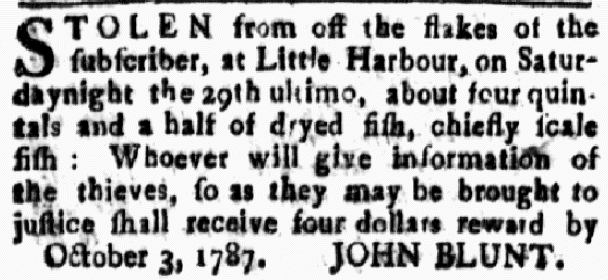
Let you get the wrong impression about what sort of man would obsess over missing fish, it was likely this Captain Blunt, Robert’s five time great-grandfather, who navigated Washington’s ship across the icy Delaware.
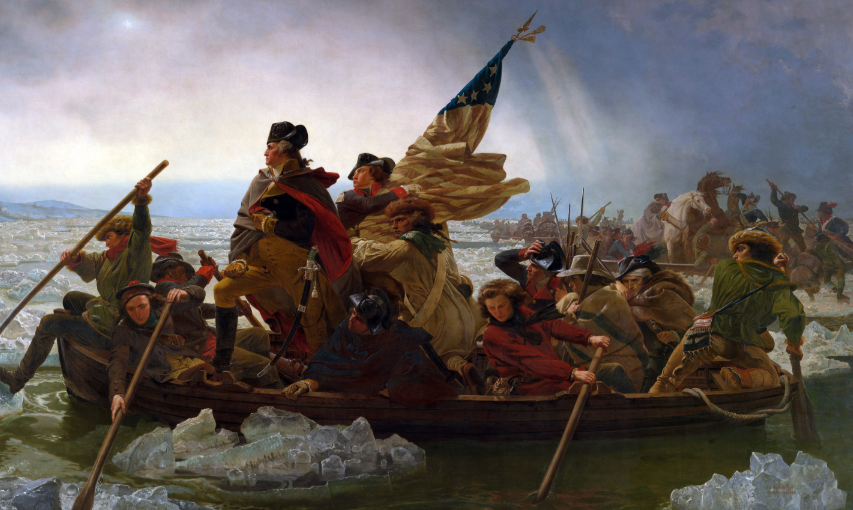
Eleven years later, one of these guys would have his dried fish stolen.
Turning to a more serious loss, here is Robert’s fourth great-grandfather, who also played a leadership role in the Revolutionary War, reporting:
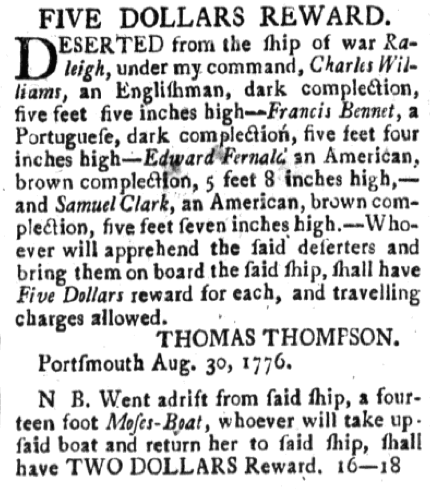
It was not the only time Captain Thompson used the papers for help in dealing with his men:
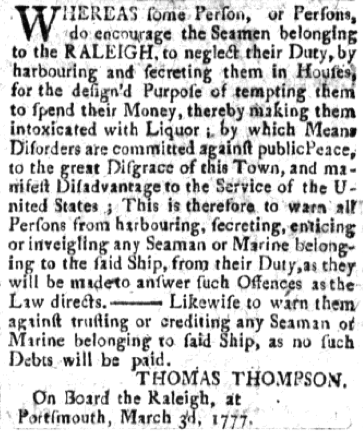
Five months later, Raleigh set sail to fight the British. The following plea for gossip marked Captain Thompson’s return to New England eight months later:
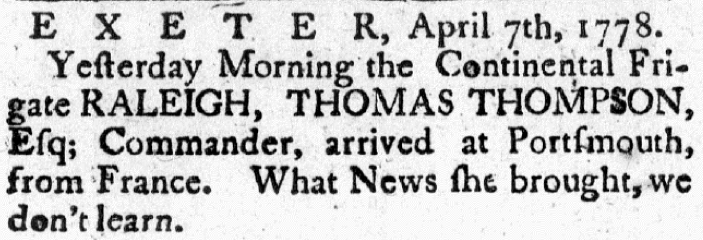
Maybe he knows who let the cows out?
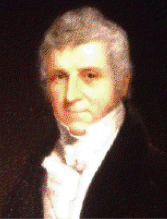
Not a coward!
The wording amused me when I first read it, until I realized Thompson likely had news of vital importance to a new nation struggling for independence. As it turns out, he did: a ship accompanying Captain Thompson’s had been captured by the British. He was rightly reluctant to share this delicate information, for once it became known, he was relieved of his command, accused of cowardice and dereliction of duty.
Whatever additional information was then known, it was not until the 8/11/1927 edition of The Portsmouth Herald that the full story appears in print. It seems Raleigh and the captured ship had just “loaded with military stores” in France, and on their way home they encountered the English. The other ship was in the better position to have caught up to Raleigh before engaging, but it did not. “Captain Thompson seeing that it was then three ships against one, and being loaded with military stores that were very important for the American army, decided not to give battle to the ships.”
Despite the disgrace at the time, Robert’s collection of newspaper articles tracing the remainder of Captain Thompson’s life depict a leading, well-respected citizen, who did not lose any cows or dried fish. Here is his death notice:

 Follow
Follow
Tammy, I’m late in thanking you for taking my disparate clippings and making
something of them. I’ve since rediscovered one from the Hartford Currant,
Nov 2, 1779: “We hear from Woodstock, in Windham County, that Mrs. Dorcas Sanger, about 84 years of age, lately walked about two miles hand in hand with her daughter, grand-daughter, great-grand daughter, and great-great grand-daughter, five generations; the said daughter was the mother of 19 children before she see forty years.” getting details…
Wow!!! What an image! Five generations of child brides? 🙂
Thanks again for letting me raid your personal archive — I had a ton of fun doing it!